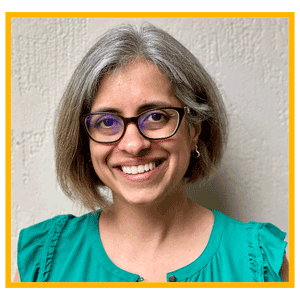This article was first published on the AFCOM website.

Garima Kochhar
AFCOM: What does your day-to-day look like? What are your favorite parts of your job, and have they evolved over time?
Garima Kochhar: My role is as a technologist looking at future technologies and system design as part of the Chief Technology Office at Dell. My days are spent developing and evaluating future technologies, working with customers on their future needs and current pain points, and brainstorming with my colleagues to refine designs.
The favorite part of my job is the collaborative and iterative problem-solving of complex challenges. In the moment it feels like just the day-to-day, but every now and then you can see how far we’ve come and how much we’ve learnt along the way. These aspects better inform our designs for the future.
AFCOM: What industry trends or emerging technologies have made you the most excited?
GK: I am excited about future breakthroughs that will impact human progress in not just technology areas like Generative AI, data analytics, and high-performance computing, but the impact these technologies will have in disciplines that use these techniques.
Climate modeling, drug discovery, deeper understanding of diseases and breakthroughs in treatments, connecting people, and improving lives – to me those are the true applications of new technologies, and I am excited to see what we can do collectively.
AFCOM: What do you consider to be your greatest professional accomplishment thus far? What do you hope to accomplish by 2030?
GK: I have led and been a part of many Dell “firsts” in my career so far and each one was its own remarkable milestone. Finding solutions for challenging problems with engineering rigor makes me proud to be able to contribute to technologies that drive scientific advancements. What I am most proud of is being a trusted advisor and a mentor (and in my own learning along that journey). Conversations around coaching and advocacy, technical discussions for expert insight, and the direct value of these discussions to people make me proud to be part of this community and the ability to pay back.
AFCOM: In your opinion, how can the industry encourage and empower more women to start a career in data centers?
GK: This is an important question, and I don’t have any perfect magic answers. I think all people are looking for similar things for a fulfilling career – to work on something meaningful, in an environment that is collaborative and inclusive, with leaders that provide direction and guidance, and in a team that values their work. For leaders this means establishing routines and a team culture that encourages and provides a conducive environment for open discussion.
Extra context, frequent check-ins, and feedback is a good way to keep a team aligned and reconcile disconnects early on. Women should be encouraged to bring new perspectives and be supported individually and publicly. Whether it's meetings or social events, teams should consider the needs of all their colleagues. Examples include holding key meetings at times when team members are not busy with morning/evening childcare duties, or planning team events with enough heads up so folks can manage their schedules.
AFCOM: What advice would you provide to young professionals looking to start a career in the data center industry?
GK: Look for the folks willing to teach, and in turn, even with the first set of projects look to teach and share what you’ve learned. Teaching is harder than doing, it sharpens one’s own understanding and keeps us grounded. Focus on and continue to develop deep fundamental knowledge in your area of work. Learning how to extract meaning out of data, and how to present your material effectively to different types of audiences is a good skill to develop as well.






